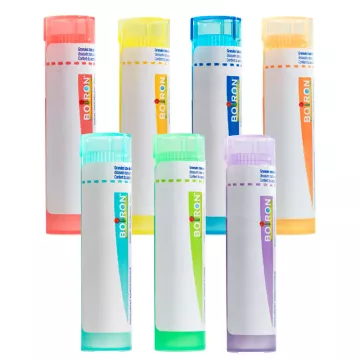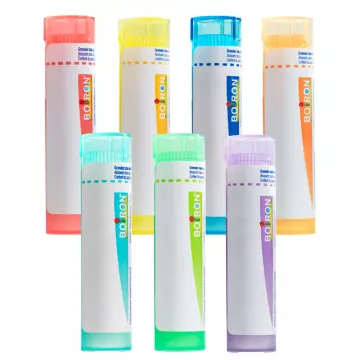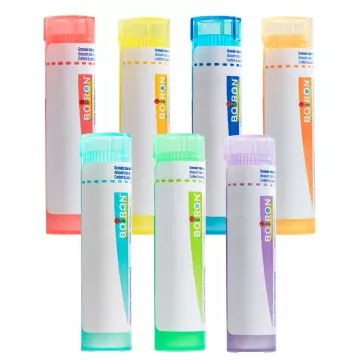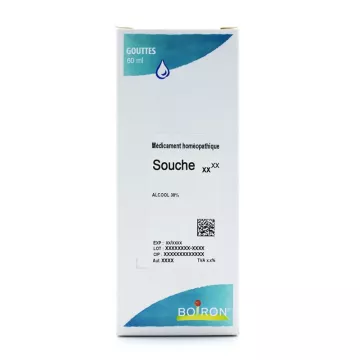






What is rhinopharyngitis?
Rhinopharyngitis, commonly known as the common cold, is a viral infection that affects the rhinopharynx, the area that includes the nose and throat. The condition is particularly common and affects people of all ages, making it the most common viral respiratory infection.
What causes rhinopharyngitis?
Rhinopharyngitis is caused mainly by viruses, the best-known of which is the rhinovirus. Other viruses such as coronavirus, parainfluenza virus and respiratory syncytial virus (RSV) can also be responsible. Transmission takes place via respiratory droplets when sneezing or coughing, or by contact with contaminated surfaces.
How can I recognize the symptoms of rhinopharyngitis?
Symptoms of rhinopharyngitis include :
Stuffy nose or clear nasal discharge
Sore throat
Cough
Sneezing
Fatigue
Mild fever (more frequent in children)
These symptoms generally appear 1 to 3 days after exposure to the virus, and last an average of 7 to 10 days.
How is nasopharyngitis treated?
Although there is no specific treatment to eradicate the rhinopharyngitis virus, several measures can be taken to relieve symptoms:
Adequate rest
Regular hydration
Use of saline nasal sprays to clear the nose
Throatlozenges to relieve sore throats
Paracetamol or ibuprofen to reduce fever and pain
It's important to consult a doctor if symptoms worsen or persist for more than 10 days.
How can rhinopharyngitis be prevented?
Preventing rhinopharyngitis involves simple but effective measures:
frequent hand washing with soap and water
Use of hydroalcoholic gel
Avoid close contact with sick people
Cover mouth and nose when coughing or sneezing
Regularcleaning of frequently touched surfaces
Can you catch rhinopharyngitis more than once?
Yes, it is possible to catch rhinopharyngitis several times, as there are many different viruses that can cause this infection. What's more, the immunity developed after an infection is specific to that virus and often temporary.
What's the difference between rhinopharyngitis and the flu?
Rhinopharyngitis and influenza are both respiratory infections, but they are caused by different viruses. Rhinopharyngitis is generally less severe, characterized by a blocked nose, sneezing and a mild cough. Influenza, caused by the influenza virus, causes more intense symptoms such as high fever, muscle aches, extreme fatigue and dry cough. Flu can lead to serious complications, especially in the elderly, young children and people with chronic medical conditions.
Can antibiotics be used to treat rhinopharyngitis?
No, antibiotics are not effective against rhinopharyngitis because it is caused by viruses, and antibiotics only fight bacterial infections. Inappropriate use of antibiotics can contribute to antibiotic resistance, a major public health problem. Treatment of rhinopharyngitis is based on relieving symptoms while the body fights the viral infection.
Are children more susceptible to rhinopharyngitis?
Yes, children are particularly susceptible to rhinopharyngitis because their immune systems are still developing, and they are often in close contact with other children at school or daycare, where viruses can spread easily. Children can have 6 to 8 colds a year, significantly more than adults.
How can you tell rhinopharyngitis from allergies?
Although some symptoms of rhinopharyngitis and allergies are similar, such as a blocked nose and runny nose, there are some key differences. Allergies don't cause fever or muscle aches, and are often accompanied by itchy eyes, which are not characteristic of rhinopharyngitis. What's more, allergy symptoms last as long as the person is exposed to the allergen, whereas rhinopharyngitis generally resolves itself within a week to ten days.
Are there any natural remedies for rhinopharyngitis?
Several natural remedies can help relieve the symptoms of rhinopharyngitis:
Hydration is crucial; drinking plenty of water, juice or hot broths can help thin mucus.
Inhaling steam or using a humidifier can relieve nasal congestion.
Honey (for children over one year of age) can soothe sore throats and coughs.
Herbal infusions such as thyme, eucalyptus or peppermint can help clear the respiratory tract.
However, it's important to consult a healthcare professional before trying any natural remedies, especially if symptoms are severe or persist.